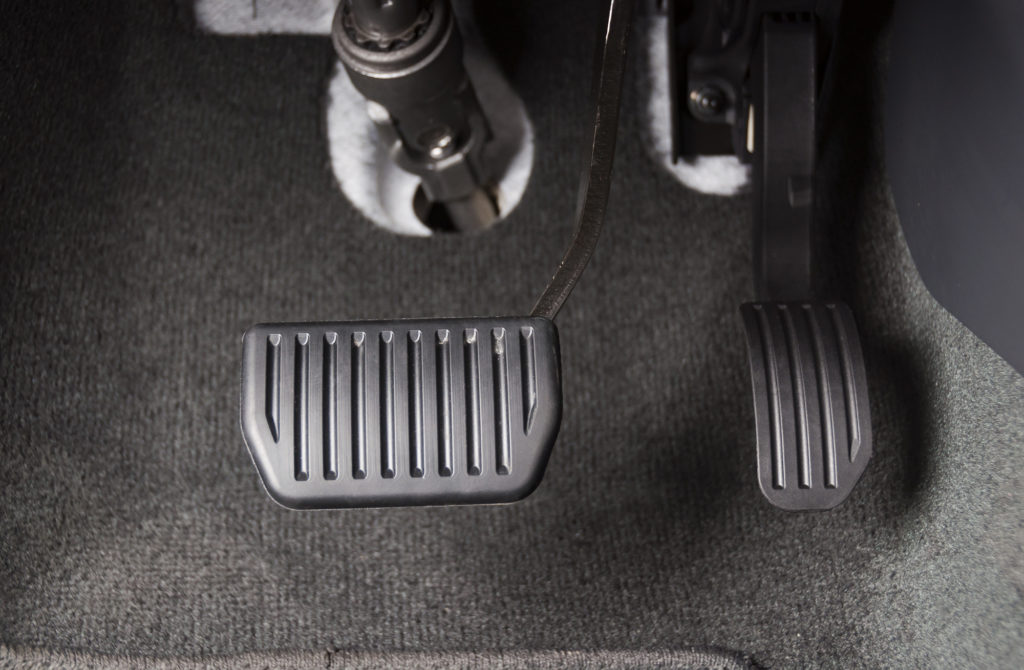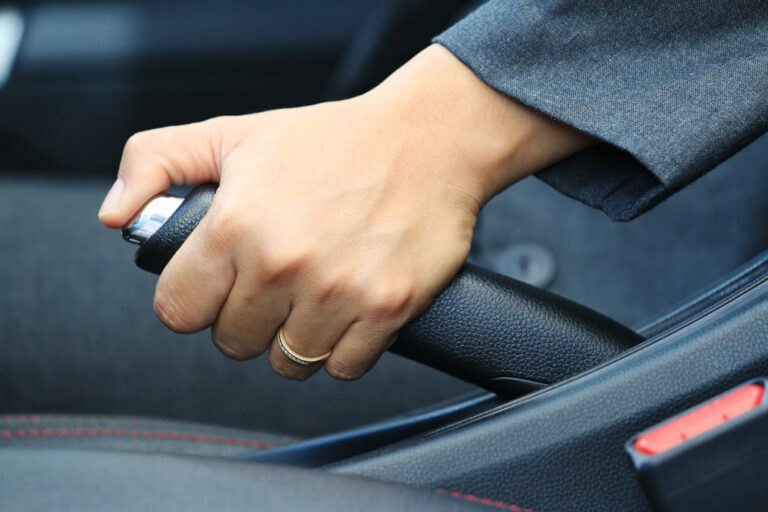Imagine this: you’re cruising down the highway, enjoying the power and luxury of your BMW X5, when suddenly the unthinkable happens. You press the brake pedal, but instead of slowing down, it feels like you’ve pressed a sponge. The pedal sinks to the floor, and your heart drops as you realize you’ve lost your brakes. It’s a nightmare scenario that no driver wants to face, but unfortunately, it’s a reality for some BMW X5 owners.

Image: mycarmakesnoise.com
The sinking feeling of a brake pedal going to the floor is a terrifying experience that can leave you feeling vulnerable and helpless. In this comprehensive guide, we’ll delve into the causes, symptoms, and potential solutions behind the dreaded BMW X5 brake failure. We’ll explore common culprits like brake fluid leaks, worn brake pads, and faulty brake booster, providing valuable insights to help you stay safe on the road.
Understanding the BMW X5 Brake System
The BMW X5 boasts a sophisticated brake system designed to provide responsive and safe stopping power. It relies on a hydraulic system that uses brake fluid to transfer pressure from the brake pedal to the calipers, which in turn squeeze the brake pads against the rotors to slow the vehicle down. However, like any complex system, the BMW X5 brake system can be susceptible to various issues, leading to complications like the dreaded brake pedal going to the floor.
Common Causes of a BMW X5 Brake Pedal Going to the Floor
Several factors can contribute to a BMW X5 brake pedal sinking to the floor. Understanding these causes is crucial for addressing the problem effectively and ensuring your safety.
1. Brake Fluid Leaks
Brake fluid is essential for the proper functioning of your brake system, but over time, it can leak out due to wear and tear, damaged hoses, or even faulty calipers. This leak reduces the pressure within the hydraulic system, causing your brake pedal to feel soft or go to the floor. A visual inspection of the brake system components and a regular fluid check can help identify potential leaks early on.

Image: www.usedcars.co.ke
2. Worn Brake Pads
Brake pads are designed to wear down gradually, but excessive wear can lead to a soft brake pedal. When the pads become too thin, the caliper pistons may extend too far, reducing the amount of available brake fluid. This can cause a spongy feeling in the brake pedal, which can worsen over time, eventually leading to the pedal going to the floor.
3. Faulty Brake Booster
The brake booster is a vacuum-powered device that assists in amplifying the pressure from your brake pedal to the brake system. A faulty brake booster can result in a soft brake pedal and difficulty stopping, particularly at low speeds. It can also contribute to the pedal going to the floor, as it diminishes the force needed to activate the brakes effectively.
4. Master Cylinder Failure
The master cylinder is a critical component of your brake system. It’s responsible for sending brake fluid to the calipers when you press the brake pedal. If the master cylinder fails, it can lead to brake fluid leaks, resulting in a spongy pedal and ultimately, the pedal going to the floor.
5. Air in the Brake Lines
Air trapped within the brake lines can also cause a spongy brake pedal and reduce braking effectiveness. This air can be introduced during brake fluid changes or if the lines are damaged. Bleeding the brakes properly removes air and ensures proper hydraulic pressure, preventing a spongy brake pedal and restoring optimal braking performance.
Signs of a BMW X5 Brake Problem
Recognizing the signs of brake problems early on is crucial for preventing a dangerous situation. Here’s what to look out for:
1. Spongy Brake Pedal
Perhaps the most telltale sign, a spongy or soft brake pedal indicates that the brake fluid pressure is compromised. It’s a clear warning that your brake system needs attention.
2. Increased Braking Distance
Finding yourself having to press the brake pedal harder or longer to stop your BMW X5 is a major red flag. This signifies that your brakes are not functioning as efficiently as they should, and you should have them inspected immediately.
3. Braking Noise
Squealing, grinding, or other unusual noises coming from your brakes can indicate worn brake pads or other issues with the brake system. Never ignore these noises, as they are your brakes’ way of telling you something is wrong.
4. Brake Fluid Leak
Spotting brake fluid leaks beneath your BMW X5 is a serious matter. Look for any signs of fluid dripping from brake lines, calipers, or the master cylinder. Don’t wait to resolve this problem. Prompt action can prevent a more dangerous situation.
What to Do if Your BMW X5 Brake Pedal Goes to the Floor
If you find yourself in the terrifying situation where your BMW X5 brake pedal goes to the floor, stay calm and follow these steps:
1. **Do Not Panic**: Keep a calm and steady mind to make sound decisions in a stressful situation.
2. **Shift to a Lower Gear**: Use manual gears, if applicable, to slow the vehicle down.
3. **Engage the Parking Brake**: The parking brake can help slow the vehicle, especially on inclines.
4. **Pull Over to a Safe Spot**: Steer the car to the side of the road or any safe area.
5. **Contact Emergency Services**: If you cannot stop safely, call for roadside assistance or emergency services.
Preventing Brake Issues in Your BMW X5
While you can’t always prevent unforeseen issues, taking proactive measures can help minimize your risk of brake problems:
1. Regular Brake Inspections
Get your BMW X5’s brake system inspected regularly by a qualified mechanic. This routine check includes inspecting brake pads, rotors, brake fluid levels, and hoses to prevent early wear and tear.
2. Proper Brake Fluid Maintenance
Follow your car manufacturer’s recommendations for brake fluid changes and top-off the fluid as needed. This helps maintain the optimal hydraulic pressure in your brake system.
3. Careful Driving Habits
Avoid harsh braking and aggressive driving maneuvers. Smooth acceleration and braking help extend the life of your brake components.
4. Avoid Overloading
Too much weight on your BMW X5 can place additional strain on your braking system. Make sure your vehicle isn’t overloaded.
Bmw X5 Brake Pedal Goes To The Floor
Conclusion
A BMW X5 brake pedal sinking to the floor is a terrifying experience, but knowing what to do and how to prevent it is critical. Stay vigilant with regular brake inspections, proper maintenance, and safe driving habits to ensure your brakes are performing at their best. Remember, your safety on the road depends on a well-maintained and reliable braking system. Don’t ignore warning signs, and get professional help when needed to keep your BMW X5 a safe and reliable companion for your journeys.





